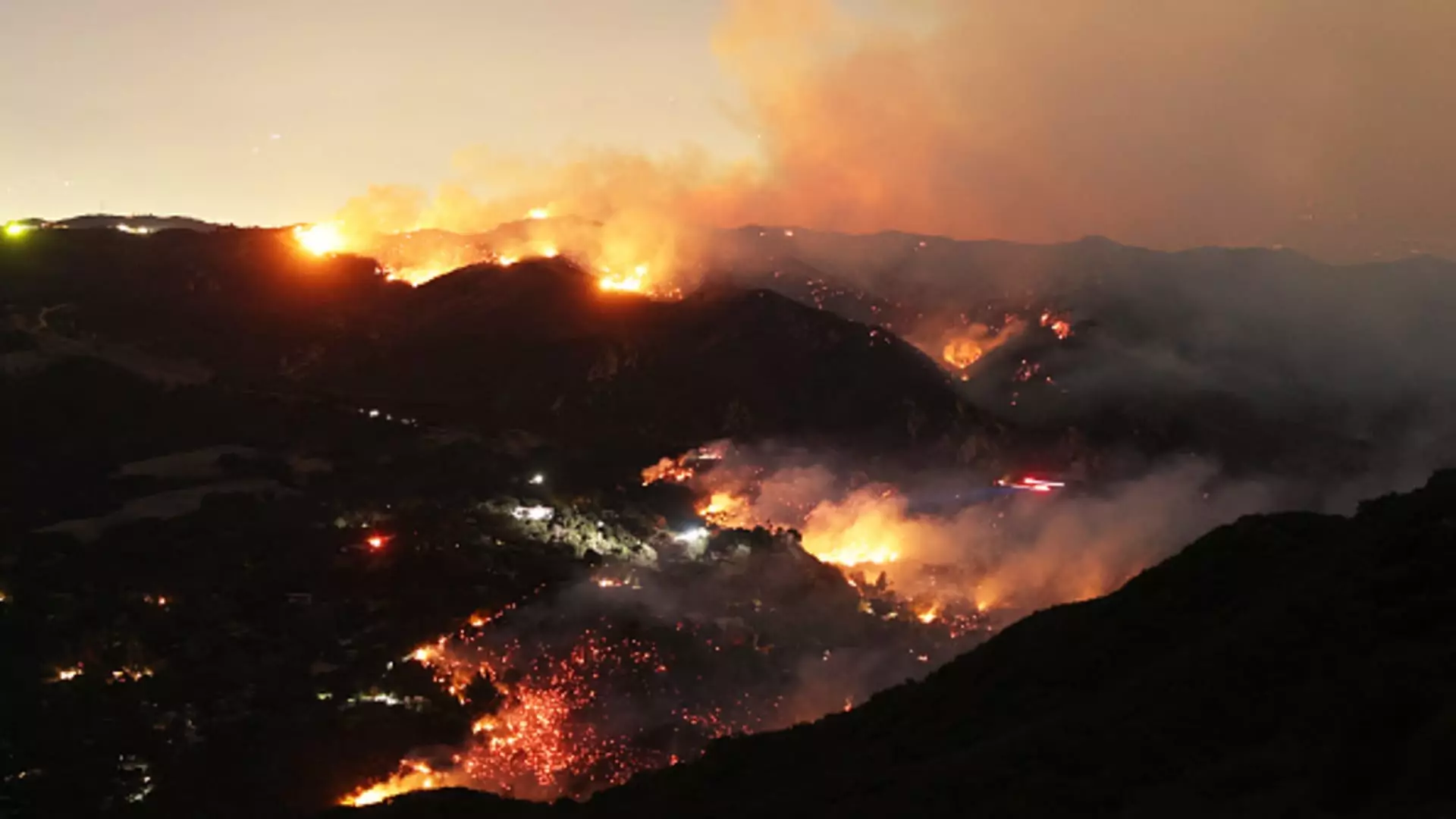In Southern California, residents are grappling with the aftermath of unprecedented wildfires that have surged through the Greater Los Angeles area, consuming an astonishing 40,000 acres and obliterating over 12,300 structures. This disaster has prompted urgent evacuation orders for approximately 88,000 residents, with an additional 89,000 under warning alerts. As these individuals face potential losses amounting to billions, the complexities of filing insurance claims present neither a simple nor straightforward path to recovery.
The financial impact of these wildfires is staggering. According to JPMorgan estimates, insured losses are poised to exceed $20 billion, a sentiment echoed by Wells Fargo’s similar assessments. While immediate reactions may revolve around physical safety and emotional recovery, the economic implications are equally dire. Homeowners and renters alike must brace for a protracted process of claims and potential out-of-pocket expenses, making informed decisions regarding their insurance policies imperative.
Understanding Insurance Claims
Navigating the insurance ecosystem post-disaster requires a strategic approach. Karl Susman, an experienced insurance broker, emphasizes the importance of hastily filing claims. Victims need not wait for first responders to extinguish the flames completely; in fact, commencing the claims process can be productive even when the status of one’s home remains uncertain. He advises maintaining a proactive stance, often reminding clients that a swift initiation can buffer against delays that typically arise from an influx of claims during catastrophic events.
Aligning with Susman’s advice, Shannon Martin, an analyst with Bankrate.com, contends that “most of the claims processes available to homeowners are accessible to renters.” Even individuals who have just fled the firezone are encouraged to file claims, demonstrating that preparation and action can mitigate the chaos of recovery.
One of the key components of filing a successful insurance claim is comprehensive documentation. Douglas Heller, from the Consumer Federation of America, asserts that maintaining meticulous records can significantly ease the claim process. Individuals should document every receipt related to temporary housing, food, and personal items lost or damaged in the blaze. Such evidence helps ensure that they can substantiate their claims and receive appropriate compensation.
Moreover, understanding policy specifics is vital. Many homeowners and renters may possess a “loss of use” provision in their insurance, which affords rental support when a primary residence becomes uninhabitable due to damage. Jeremy Porter of First Street Foundation highlights that these benefits serve as a crucial lifeline, making it essential for policyholders to inquire about their coverage and file for assistance when needed.
As many grapple with the loss of their homes, it is crucial to address utility services. Karl Susman suggests contacting utility providers to suspend services, potentially affording some financial reprieve during this tumultuous time. The conversation also extends to vehicle loss due to wildfires. Understanding that damage to a vehicle may fall under comprehensive coverage in auto insurance policies, residents should consult their policies to ensure the appropriate claims are filed.
In the wake of significant damage, homeowners might also be eligible for property tax relief. If a residence incurs damages exceeding $10,000 or is deemed a total loss, residents can file for a reduction or cessation of property taxes during reconstruction periods. Such provisions are vital yet often overlooked, highlighting the necessity for homeowners to educate themselves on available options.
For those without insurance or whose coverage lapsed prior to the crisis, seeking aid becomes paramount. President Biden’s recent announcement of one-time payments through FEMA signifies a small but crucial step towards recovery. Victims can seek assistance at DisasterAssistance.gov or the FEMA hotline. Public workshops, organized by California’s Insurance Commission, will also aid individuals in understanding the recovery process while providing targeted answers to pressing questions.
As Southern Californians forge a path forward amidst the chaos of wildfire devastation, understanding the intricacies of insurance claims and available resources can significantly impact their recovery trajectory. Immediate action, diligent documentation, and proactive engagement with providers can arm victims with the tools needed to navigate the choppy waters of recovery. In a time of turmoil, having guidance can provide reassurance as individuals and families rebuild their lives and communities from the ashes of disaster.

